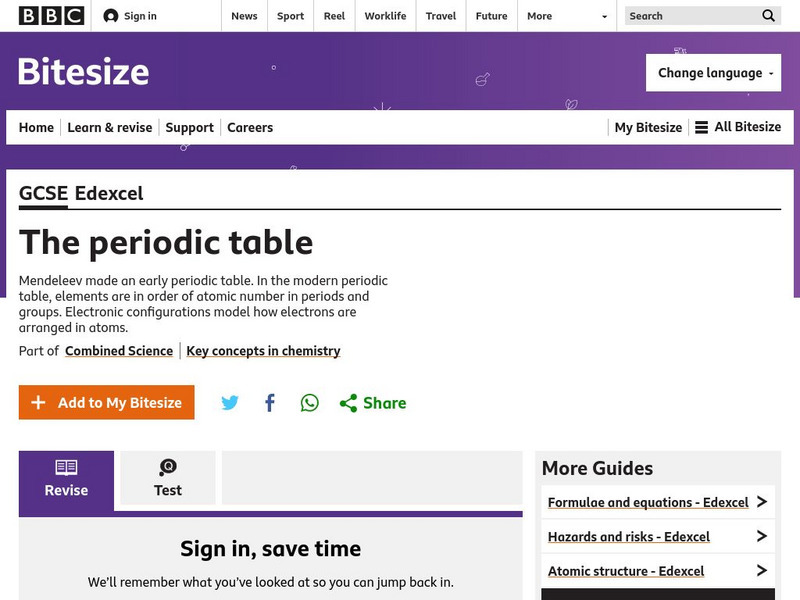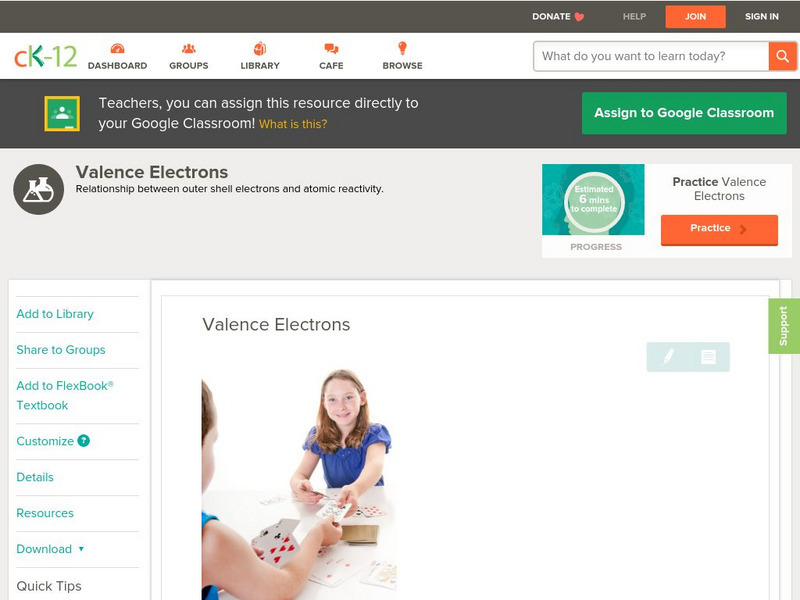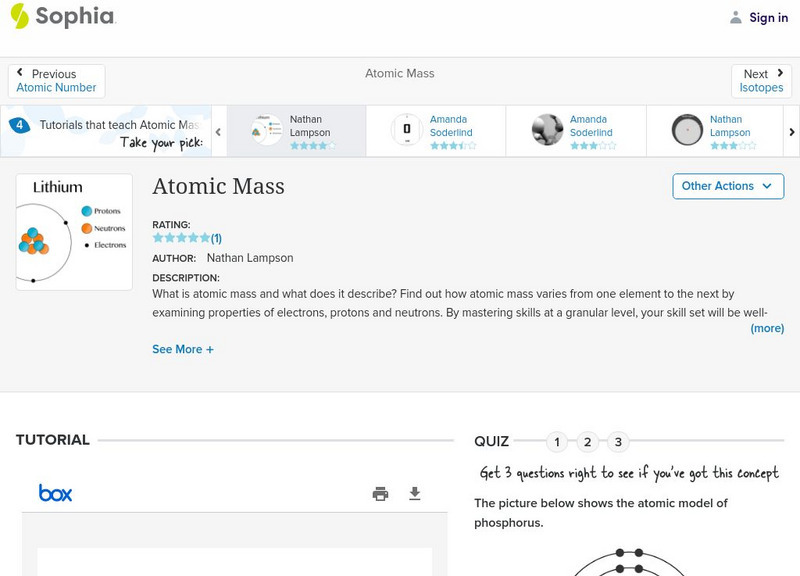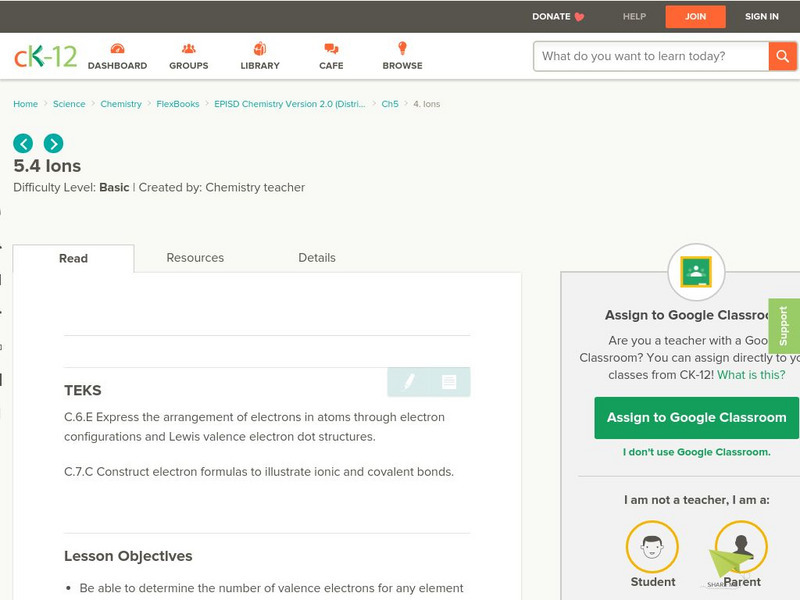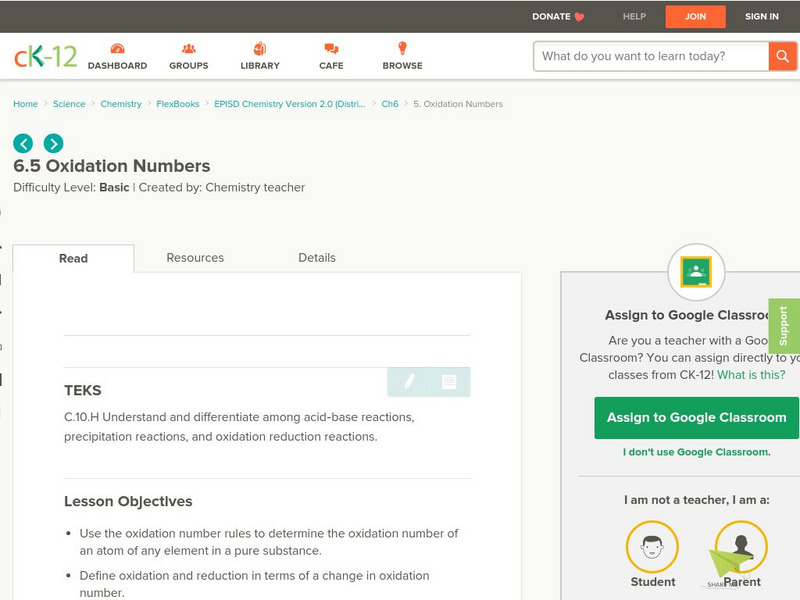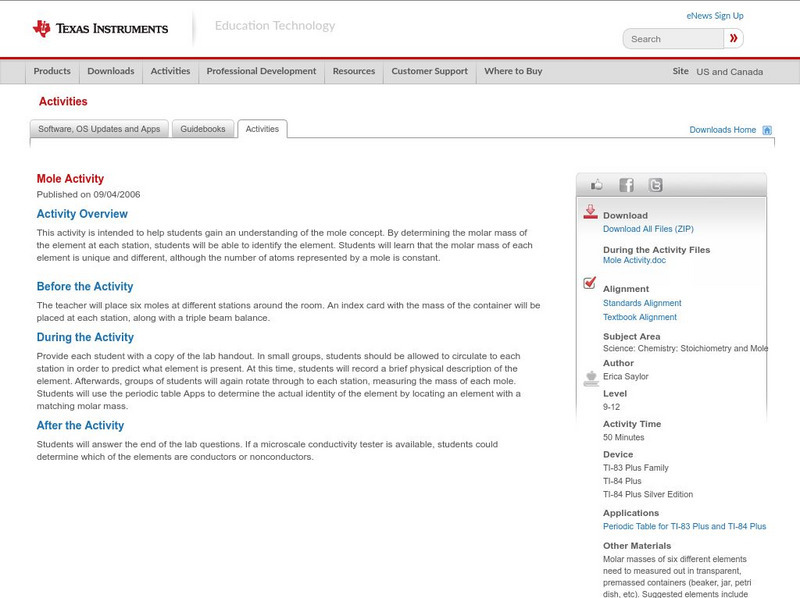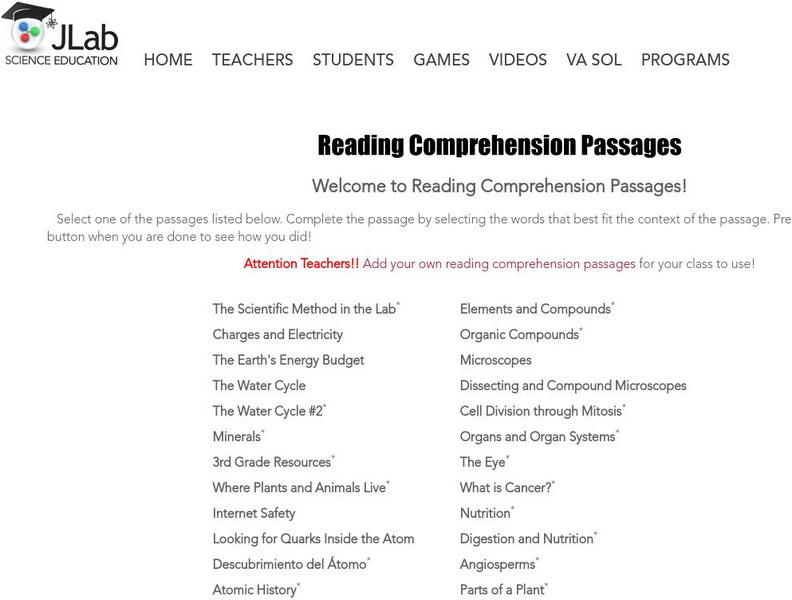Hi, what do you want to do?
Sophia Learning
Sophia: Science Tutorial: Matter
Created to teach students of the 21st century, SOPHIA is bringing matter straight to your fingertips. Become the commander of your own learning experiences as you take part in this interactive tutorial. [1:02]
TED Talks
Ted: Ted Ed: What Is the Universe Made Of?
The atoms around you have existed for billions of years- and most originated in the flaming, gaseous core of a star. Dennis Wildfogel tells the captivating tale of these atoms' long journeys from the Big Bang to the molecules they form...
Other
Fagan Finder: All About Rss
This page is about using RSS and Atom, from a non-technical standpoint.If you are interested in creating RSS feeds, see this RSS Workshop, or Atom for Publishers for Atom.
BBC
Bbc: Gcse Bitesize: The Periodic Table
This lesson focuses on the periodic table and the configurations. In the modern periodic table, elements are in order of atomic number in periods and groups. Electronic configurations model how electrons are arranged in atoms. A link to...
Concord Consortium
Concord Consortium: How Does an Object Become Charged?
Activity 1 in this module: What is the effect of changing the composition of an atom? Since all atoms contain protons, neutrons, and electrons, what makes one element different from another is examined.
CK-12 Foundation
Ck 12: Fifth Grade Science: Physical Science: Types of Matter
[Free Registration/Login may be required to access all resource tools.] Discusses elements, atoms, compounds, molecules, and crystals. Looks at mixture and different types of them.
Other
Science Alive: Synthetic vs. Natural: What's the Difference?
Through this reading, students will learn that a substance's properties arise from its molecular structure, not from how it's made (i.e., synthesized by people or found in nature). There is no fundamental difference between natural and...
Texas Instruments
Texas Instruments: Atomic Structure
This StudyCards stack enables students to review the terms associated with learning and using the Periodic Table of the Elements.
University Corporation for Atmospheric Research
Ucar: Cycles of the Earth System: Traveling Nitrogen
Through hands-on activities, students play the role of nitrogen atoms traveling through the nitrogen cycle to gain understanding of the varied pathways through the cycle and the relevance of nitrogen to living things.
Concord Consortium
Concord Consortium: How Does an Object Become Charged?
This module develops atomic-level causal models to explain observations of electrostatic interactions via the following activities: Activity 1. What is the effect of changing the composition of an atom? Activity 2. How do objects become...
CK-12 Foundation
Ck 12: Physical Science: Valence Electrons
[Free Registration/Login may be required to access all resource tools.] Valence electrons, their variation in the periodic table and relation to reactivity and electrical conductivity of elements.
OpenStax
Open Stax: Organic Compounds Essential to Human Functioning
Learn here about organic compounds, groups of carbon atoms covalently bonded to hydrogen, usually oxygen, and often other elements as well, and how they are essential to human functioning.
Sophia Learning
Sophia: Atomic Mass: Lesson 4
This lesson explains what is represented by the atomic mass, and how it varies from one element to the next. Module includes a slideshow and a quiz.
CK-12 Foundation
Ck 12: Ions
[Free Registration/Login may be required to access all resource tools.] In the following online tutorial students will be able to determine the number of valence electrons for any element and draw an electron dot diagram for any atom....
CK-12 Foundation
Ck 12: Oxidation Numbers
[Free Registration/Login may be required to access all resource tools.] In the following online tutorial students will use the oxidation number rules to determine the oxidation number of an atom of any element in a pure substance. They...
Texas Instruments
Texas Instruments: Mole Activity
This activity is intended to help students gain an understanding of the mole concept. By determining the molar mass of the element at each station, students will be able to identify the element. Students will learn that the molar mass of...
Alabama Learning Exchange
Alex: Emission Spectrum
We will reintroduce the students to the electromagnetic spectrum and visible light. We will talk about the states of electrons(ground and excited). The teacher will show a video link (Electrons in Atoms). We will then perform the science...
National High Magnetic Field Laboratory
Magnet Academy: Enrico Fermi
Enrico Fermi was a titan of twentieth-century physics. He outlined the statistical laws that govern the behavior of particles that abide by the Pauli exclusion principle and developed a theoretical model of the atom in his mid-twenties....
University Corporation for Atmospheric Research
Ucar: Biogeochemical Cycles
The ways in which an element or compound such as water moves between its various living and nonliving forms and locations in the biosphere is called a biogeochemical cycle. All of the atoms that are building blocks of living things are a...
Thomas Jefferson National Accelerator Facility
Jefferson Lab: Reading Comprehension Passages
Thirty-three cloze reading passages on various scientific passages including the scientific method, the water cycle, earth science, atoms, elements, cell division, body systems, and more.
Quia
Quia: Silver
Play games to help you memorize information about the element silver. Play word seach, concentration and flashcards with questions about atom symbol, atomic number and more.
Other popular searches
- Elements and Atoms
- Atoms Elements and Compounds
- Candy Atoms and Elements
- Science Elements and Atoms
- Physics Atoms and Elements
- Elements Molecules and Atoms
- Atoms, Elements, and Compounds
- Atoms, Elements and Compounds








